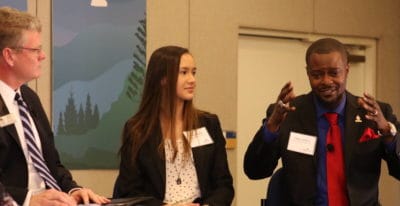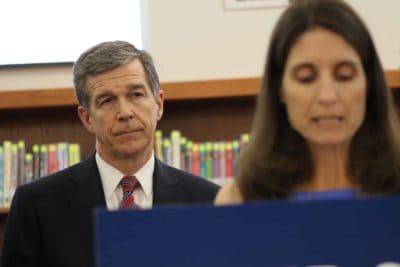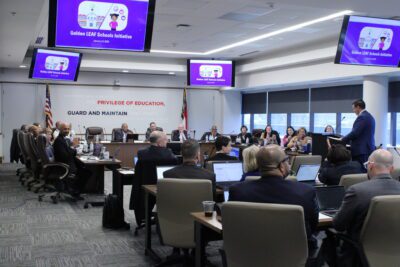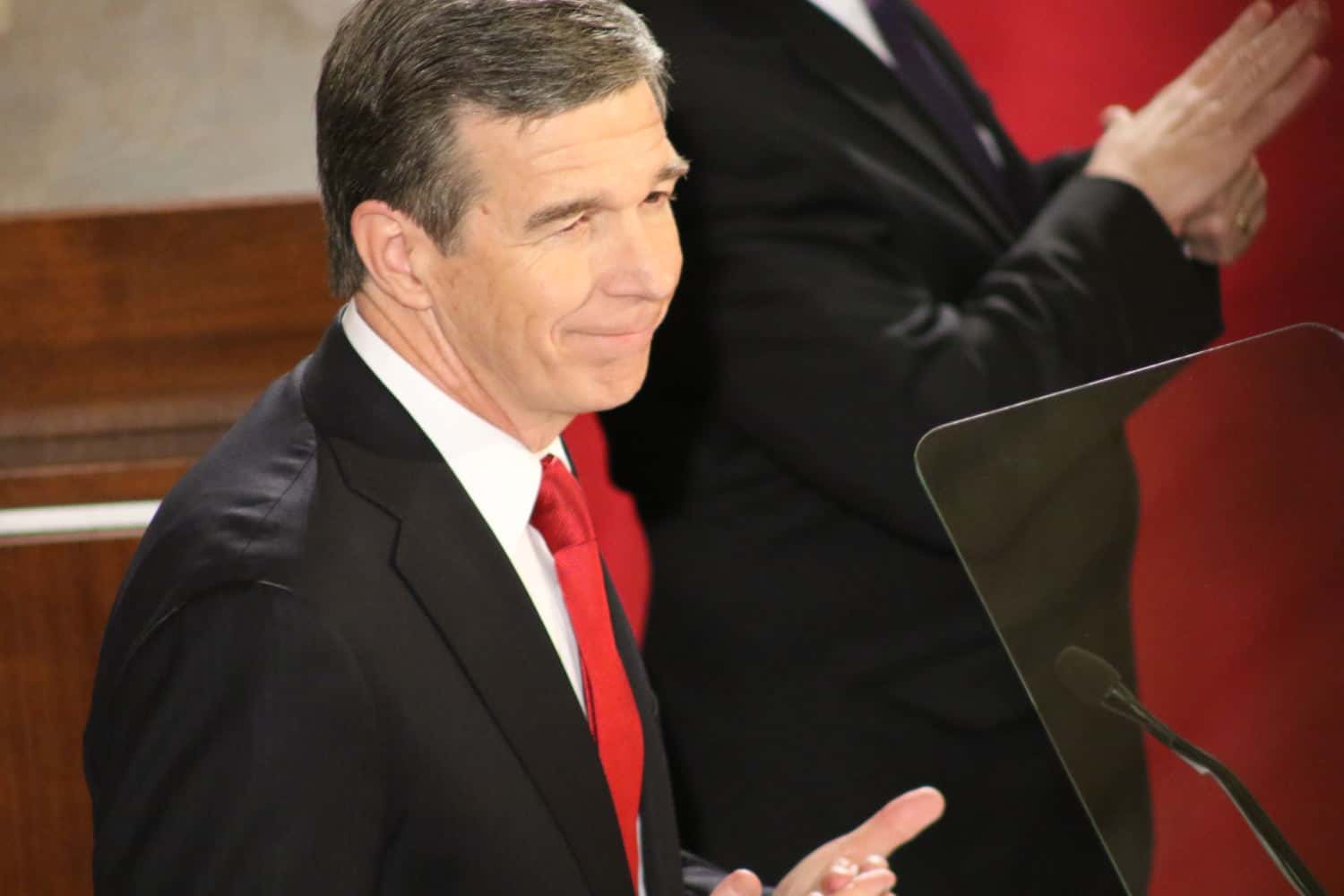In his first State of the State address Monday night, Governor Roy Cooper reached out to lawmakers to find a mutual vision on a unifying cause: the state’s children.
“When I’m recruiting a business to come here — to your legislative districts—the first thing they ask is whether North Carolina has the workers skilled enough to fill the jobs they create,” Cooper said to General Assembly members, state Supreme Court Justices, Cabinet members, the Council of State, and special guests.
“Improving education is an area where we can find common ground. We have to measure our progress and hold ourselves accountable,” he said.
Cooper touted his proposal, called, “Making NC a Top Ten Educated State,” which outlines a five percent average teacher salary raise over the next two years, the addition of 4,700 N.C. Pre-K slots, and $30 million for classroom and digital materials.
“As our children move from early childhood to grade school, we entrust our teachers with their futures every single day,” he said. “Let’s put our money where our trust is and raise teacher salaries.”
Cooper said his raises would put the state’s average teacher salary at first in the Southeast in three years and equal to the national average in five years. He also mentioned his proposed $150 annual stipend to help with classroom supplies. He introduced Jasmine Lauer, a Wake County teacher, who Cooper said has to buy online books for students out of her own pocket.
“Jasmine represents so many selfless teachers who want their students to have what they need,” he said.
High Point teacher Sabrina Peacock and Durham teacher Wendell Tabb were also thanked and highlighted in the governor’s speech as examples of the importance of recruiting high-quality teachers to low-performing schools and respecting veteran teachers.
There are other points of agreement between the governor’s agenda and the Republican-led legislature on education. Besides raising teacher and administrator pay, both have shown support for early childhood education.
Cooper said his proposal would eliminate the waitlist for N.C. Pre-K, the state-funded preschool program that targets at-risk four year-olds. He mentioned state business leaders who have supported investing in early education due to its long-term economic payoffs.
“It’s the foundation for a lifetime of success, showing economic and health benefits well beyond their pre-K years,” Cooper said. “And it allows both parents to stay in the workforce. That’s a necessity for many North Carolina families.”
Both the governor and Republican lawmakers have proposed incentives and scholarships to strengthen the teacher pipeline — especially in low-performing schools.
To address that issue, Cooper spoke on his $10,000 Best and Brightest scholarship for teachers who promise to teach in the state’s schools for a minimum of four years.
Cooper and Republican leaders want to fill gaps in the state’s workforce and ensure high school students have career-oriented opportunities.
Cooper’s NC Grow (Getting ready for Opportunities in the Workforce) is designed for that purpose. He outlined the plans for a scholarship to cover tuition and fees for recent high school graduates to attend community college.
“To earn it, young people have to make good grades and apply for already-existing scholarships, loans and grant programs,” Cooper said. “It’s an idea that Republican and Democratic governors alike have supported in other states. We can make it a bipartisan reality here in North Carolina.”
Newly-elected state Superintendent of Public Instruction Mark Johnson was present Monday and said he was excited about the governor’s attention to workforce development.
“I look forward to working together with him on truly connecting K-12 to workforce development needs in urban and rural counties, especially getting down to the middle school level — letting middle school students know that a four-year degree is not the only pathway to success,” Johnson said.
Senate President Pro Tempore Phil Berger, R-Guilford, delivered the Republican response to Cooper’s address which was pre-recorded and released after the speech Monday. Berger focused on education initiatives the Republican-led legislature have backed over the last six years and equated Cooper’s plan to a return to a “troubled past.” He invited listeners to imagine a group of legislators that kept their promises to voters.
“They put students first in public schools,” Berger said. “And after years of teacher pay freezes and furloughs, they raise average teacher pay by more than 15 percent in just three years. They expand public charter schools, create new education grants for children with learning disabilities, and provide opportunity scholarships for low-income families, giving parents new freedom to choose schools that best fit the needs of their children.”
School choice remains a politically divisive subject. Cooper didn’t mention alternatives to traditional public schools that Republicans feel are necessary to meeting students’ specific needs. His budget promises to honor the current opportunity scholarship recipients but adds that it, “anticipates no new scholarships.”
Berger also criticized media organizations. “What the press will undoubtedly praise as a return to the golden age is in reality a step back to out-of-control spending, back to high taxes, back to blindly throwing money at an education bureaucracy that fails to put students first,” Berger said.
In his address, Cooper reiterated a theme from his speeches in schools across the state in recent days, saying the fundamental question is how the state will use its available funds. Republicans, he said, focus on giving tax breaks to corporations and the upper-class. He said he wants those funds to be directed towards education.
“We can not sacrifice education at the altar of even more corporate tax cuts or giveaways that are mostly for the wealthiest,” Cooper said. “Changes in our tax code need to focus on relief for working families — not corporations and millionaires.”
Sen. Ralph Hise, R-Madison, similarly to Berger, said he has seen the legislature raise teacher pay and increase early childhood spending in his six years at the legislature.
“I’m confident that the General Assembly is going to continue on those trends,” Hise said. “Just maybe not the direction that the governor wants to go, or definitely not what we saw in his budget.”
Recommended reading




